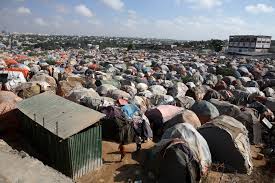With reference to Kenya’s announcement on May 6 that it would expel thousands of refugees in Dadaab back to Somalia, has triggered global concern that it could result in another humanitarian catastrophe.
Amnesty International called the move ‘reckless’, United Nations termed it ‘devastating’ and Human Rights Watch said Kenya was turning its back on “people needing protection and on fundamental principles it has pledged to respect.”
However, the government maintains refugees must go home as the 25-year old camp has become a security risk and a “nursery” for violent extremism.
“There comes a time when we must think primarily about the security of our people. Ladies and gentlemen, that time is now,” Interior Cabinet Secretary Joseph Nkaissery, told the press.
But is there more than meets the eye in Kenya’s latest push to close the largest refugee camp complex in the world?
Observers say Kenya may be taking notes from the recent deal in March between Turkey and the European Union, whereby the EU would send back refugees arriving in Greece.
In return the EU pledged over €3 billion (Sh436 billion) immediately and a similar amount later, to cover the cost of the refugees staying in Turkey.
“In Europe, rich, prosperous and democratic countries are turning away refugees from Syria, one of the worst war zones since World War Two,” Nkaissery said, raising speculation that Kenya might be interested in a deal like Turkey.
The EU has also said it will pay €250,000 (Sh28 million) per refugee as “solidarity contribution” to every member state.
“Kenya wants to create an artificial refugee crisis. It is a scenario where it shakes the tree for the fruits to fall,” commented lawyer Harun Ndubi.
During the 4th Ministerial Retreat of the Executive Council of African Union in Nairobi on May 7, Foreign Affairs CS Amina Mohammed complained that hosting refugees is “expensive” for Kenya.
“We received no support from the international community for shouldering this international responsibility, although we have been hosting refugees since the sixties,” she said.
However the UN High Commission for Refugees says that $1.5 billion (Sh150 billion) has been spent on refugees in Kenya in the last five years alone, virtually all from international donors.

